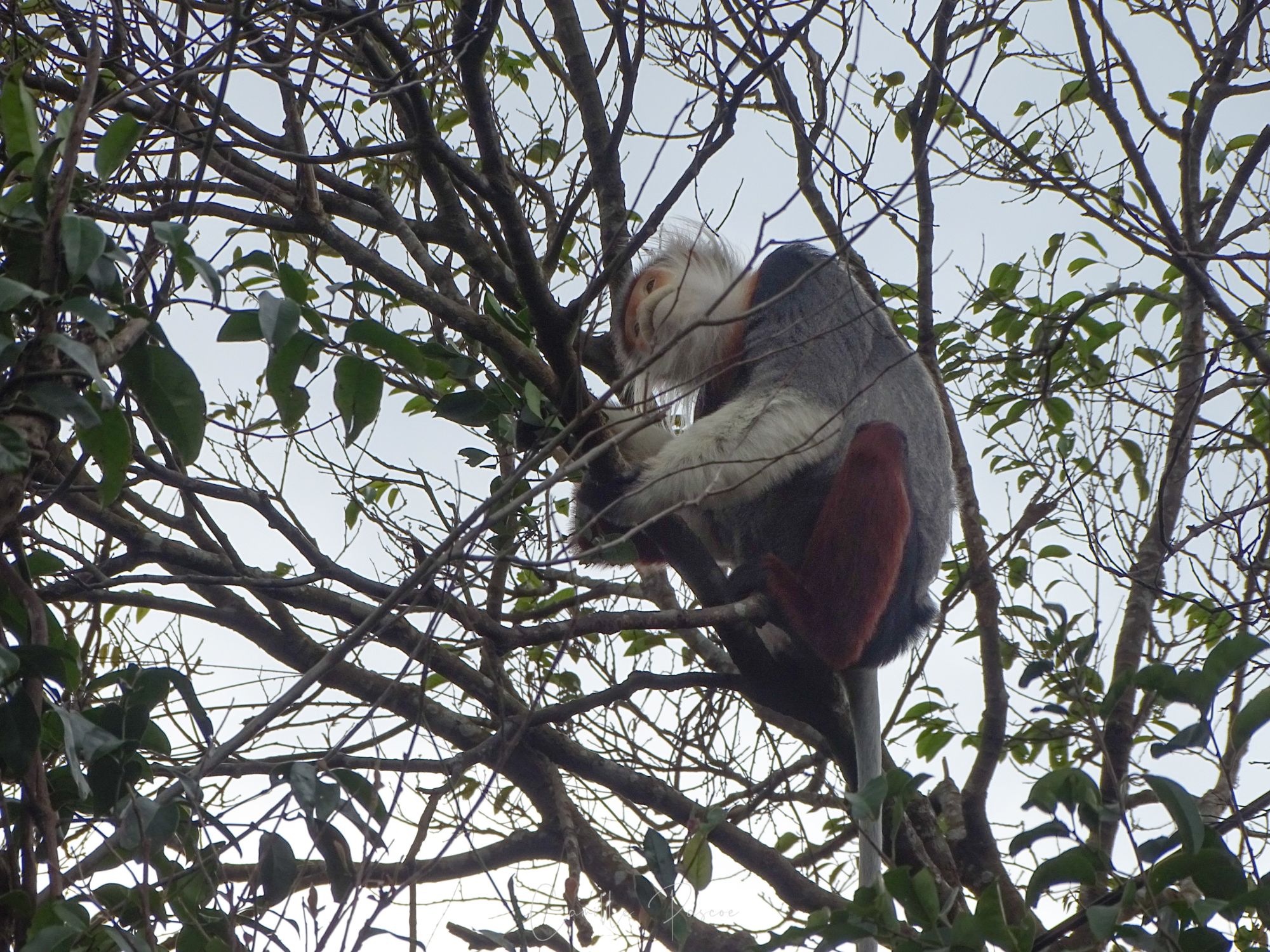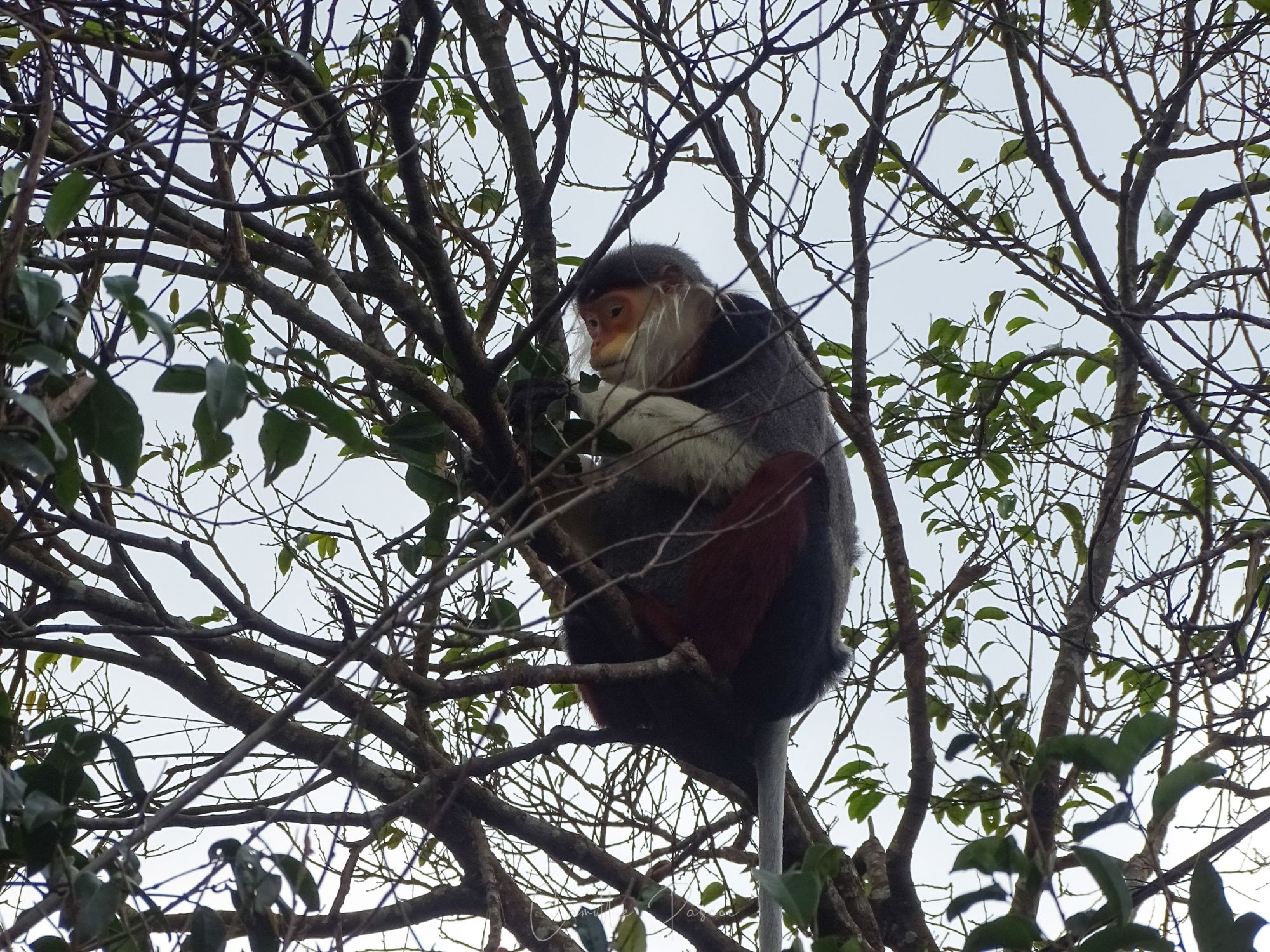The Red-Shanked Douc is a species of primate that calls the lush forests of Southeast Asia home. They are a fascinating troop to behold. With their vibrant colors, social behavior and specialized diet, these monkeys play a vital role in their ecosystems.
Five Facts About The Red-Shanked Douc
1. Coat and Colours Variations
The Red-Shanked Douc is known for its striking and vibrant appearance. This species of primate has a colorful coat that includes shades of red, gray, black, and white, making it one of the most visually captivating monkeys in the animal kingdom.

Red-Shanked Douc Langur
2. Social Structure
Red-Shanked Doucs live in close-knit social groups that are led by a dominant male. These groups typically consist of several females and their offspring. They are known for their strong social bonds and cooperative behaviors within the group.
3. Habitat
Red-Shanked Doucs are native to Southeast Asia and can be found in countries such as Vietnam, Laos, and Cambodia. They inhabit dense tropical forests and are well-adapted to life in the treetops, where they forage for food and evade predators.

Red-Shanked Douc Langur
4. Diet
The Red-Shanked Douc is primarily a folivore, meaning that its diet consists mainly of leaves. They also consume fruits, flowers and occasional insect. Their specialized digestive system allows them to extract nutrients from tough plant material.

Red-Shanked Douc Mother and infant In Son Tra Mountain
5. Conservation Status
The Red-Shanked Douc is classified as an endangered species by the International Union for Conservation of Nature (IUCN). Habitat loss due to deforestation, hunting for the illegal wildlife trade, and human encroachment are the primary threats facing these beautiful primates. Conservation efforts are underway to protect their remaining habitats to ensure their survival for future generations.
By raising awareness about the plight of the Red-Shanked Douc and supporting conservation efforts in their habitat countries, we can help ensure the survival of this unique and captivating species for years to come.
Discover more from Ports In Paradise
Subscribe to get the latest posts sent to your email.

